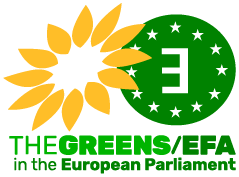Stéphane Bancel, CEO of the pharmaceutical company Moderna, was awarded the prize of Strategist of the Year by the French magazine “Les Echos” a few weeks ago, and has joined the club of billionaires. A dazzling success coupled with a crazy ambition, but at what price?
Mr. Bancel, I would like to address you this open letter in reaction to the interview you gave to Patrick Cohen from the French live broadcast Europe 1 on June 9, 2021, especially since you were awarded this November 15, the strategist of the year award by the magazine Les Échos. Being member of the Public Health-Environment and Budgetary Control Committees of the European Parliament, it is my duty to react to your statements in order to re-establish the truth and provide some clarifications to this “success story”.
Part I – Moderna’s Achievement… thanks to American public research and funding
First of all, you mention the « scientific and technological prowess » of Moderna, which with astonishing speed developed its anti-Covid 19 vaccine and produced it on a massive scale. It is true that prior to the current pandemic, Moderna Therapeutics was a small start-up company, founded in 2010, that had never developed or commercialized a vaccine. It seems incredible that a company that is completely new to the field can develop a vaccine so quickly against an unknown virus, thanks to a new technology – messenger RNA (mRNA) – and thus become a multinational company manufacturing hundreds of millions of doses per month.
What you don’t say, Mr. Bancel, is that your company benefited from public research results and huge investments from the US government to do this.
Like your competitor Pfizer/BioNTech, Moderna has benefited from sublicenses of mRNA-related patents from the University of Pennsylvania. In other words, the core technology – mRNA – that Moderna and Pfizer/BioNTech use today – was developed at a public institute with public funding. In addition, scientists at the U.S. National Institutes of Health, a U.S. government institution, co-developed Moderna’s Covid-19 mRNA-1273 vaccine. They also worked on the patent for the vaccine, which is co-owned by the U.S. government.
According to official U.S. sources, as of early 2020, Moderna has received US$4.1 billion for the development, clinical trials and manufacturing of its Covid-19 vaccine, of which approximately $1 billion was provided by the Biomedical Advanced Research and Development Authority (BARDA). Today, the U.S. government cites $10 billion in public investments for Moderna since the beginning of the pandemic. This includes R&D, but more importantly, the company’s enormous increase in manufacturing capacity, which is now capable of producing hundreds of millions of doses of vaccine per month.
Despite the fact that its contracts with the U.S. government oblige it to do so, Moderna has never published the share of public and private investments in the development of its vaccine. But, the company does list on its website the private investments it has received since its founding in 2010: about $1.5 billion in direct equity investments by shareholders and an additional $680 million in investments through collaborations with other companies.
It is not known whether any of this $2.2 billion in private investment was subsequently devoted to the R&D of the company’s Covid-19 vaccine, but you will agree that these private investments (from before the health crisis) are no match for the $10 billion in public investment you have received.
So, Mr. Bancel, let’s be clear: Moderna’s mRNA-1273 Covid-19 vaccine was developed entirely with the American citizens money. That is why the American consumer advocacy group Public Citizen is calling mRNA-1273 the « people’s vaccine ».
Real cost of production, profits and tax avoidance
Moderna markets a single product – its coronavirus vaccine, known as mRNA-1273. According to your statements, 2021 is expected to be the first profitable year for the company, due to the massive vaccine sales it expects to achieve. But, what you don’t say, Mr. Bancel, is that the pandemic has done much more than profitability of your firm. According to the recent investigation of Amnesty International, Moderna would earn over $47 billion by the end of 2022. These massive vaccine sales have also made you a billionaire personally along with four other shareholders in your company.
So how is it possible that in less than a year you have achieved such a financial prowess?
Mr. Bancel, you never publicly mention the techniques for producing mRNA vaccines, but according to various researchers from civil organizations and public institutes, the cost of a dose of Moderna’s mRNA Covid-19 vaccine was estimated at $ 2.85, or 2.47 euros. The same dose is sold for $15 in the United States and $22.50 (19 euros) in the European Union. Prices negotiated with other developed country governments have not been made public. According to the leaked European contracts, the price has risen again for the second contract that the European Union has signed with your company. This year, European taxpayers will pay 21.5 euros for a dose of your vaccine.
Moderna in tax havens
A recent investigation by the Dutch NGO Somo revealed last July that Moderna does not pay taxes on its income in the European and American countries where it conducts its production activities. And, this happens under the complacent eye of the American and European governments.
Although your company is effectively managed from its head office located in Massachusetts, USA, legally speaking, this head office is only a branch of the parent company domiciled in the state of Delaware, a well-known global tax haven. for its extremely low or even zero tax levels on income generated by patents filed within its borders. Of the approximately 780 patents Moderna holds in Delaware, 595 registrations mention the mRNA technology that forms the basis of Moderna’s coronavirus vaccine. In practice, if Moderna subsidiaries or third parties around the world use any of these patents, the respective organization using the patented technology will have to indemnify its owner, Moderna TX Inc. in Delaware. In Europe, the European executive and the 27 member states pay Moderna in Switzerland, to the bank account of Moderna Switzerland GmbH in the canton of Basel – another tax haven. It is important to note that you established this Swiss branch of your company in June 2020, a few months before you entered into your contract with the European Commission.
In a logic of fiscal justice, Moderna’s profits should accumulate where its real economic activity takes place to develop, produce and market its vaccines. However, the subsidiaries of Moderna or its contractors do not manufacture vaccines in the canton of Basel. According to the experts, we are dealing with successful tax avoidance.
In the numbers, this translates into a total of around 9.45 billion euros of Moderna’s revenue accumulated in Switzerland and paid by the European taxpayer.
Mr. Bancel, this calculation is possible thanks to the leaked contracts that the European Union has concluded with your company. On the other hand, we cannot say the same for your global profits because the State of Delaware allows you not to publish your annual accounts.
Finally, let add to all this, Mr. Bancel, that the economic injustice is obvious when taxpayers finance the development of a product but are then obliged to buy that same product at a significant margin. The fact that these profits end up in tax havens and that the current pandemic has created nine billionaires, five of whom are shareholders in your company, aggravates this injustice.
Part II – International cooperation for global access according to Moderna
In your interview last June, you explained that you were opposed to the lifting of patents on vaccines and Covid-19 technologies, saying that it « would not add a single dose of mRNA vaccine in 2021 and in 2022 to help the planet « . Your argument? This new technology would be too difficult to transfer because other companies would lack machinery and know-how. Our governments and the European Commission keep hammering similar words to justify their opposition to the temporary lifting of patents related to Covid-19 technologies at the WTO, requested a year ago by South Africa and India, and supported by more than 100 countries and the UN.
But public health experts in the West (including at the WHO) and in developing countries have been arguing for months, without success, that the opposite is entirely possible. The New York Times has carried out an extensive investigation around the world and identified at least 10 companies that could produce the mRNA vaccines in six different countries within six to eighteen months. The selection criteria were human capital, existing factories and the regulatory system in the field of drug manufacturing.
Some of these candidate companies are already producing their own mRNA vaccines: Gennova Biopharmaceuticals (India) and BioNet-Asia (Thailand) are currently testing their vaccines in Phase 2 and 3 trials. And, unlike Moderna’s vaccine, their vaccine candidates can be stored, if approved, in standard medical refrigerators.
The other selected companies (Indian, Brazilian, South African and others) would like to obtain licenses from your company or from Pfizer/BioNTech and assure that they will be able to produce one billion doses of mRNA vaccines in one year with only $100 million of investment. This is the case of Aspen Pharmacare in South Africa.
WHO experts explain that producing an mRNA vaccine is an enzyme-based process, and differs from the so-called traditional vaccine production technique. The production of mRNA is therefore very similar to the production of drugs. These companies could quickly learn and master the technique if Moderna were willing to license it and then transfer its know-how to them, as it has done with its contractors in Europe – by sending them its famous « modular kit ». In effect, this allowed your subcontractors to quickly start production on European soil.
In spite of all this, you, Mr. Bancel and your competitor Pfizer, refuse any technology transfer (even voluntary licenses), counting on Germany and other rich countries to continue to block the lifting of patents at the WTO.
Tired of denouncing the North-South vaccine inequality, the millions of deaths in poor countries where less than 2% of the population is vaccinated and the moral catastrophe that follows, the WHO has established an mRNA technology transfer hub in South Africa and has started to fund the South African company Afrigen which is trying to reconstitute your vaccine formula. As you already know, this is called « reverse engineering »: researchers aim to create a “double” of the second-generation Moderna vaccine, more suitable for low-income countries, including in terms of price and storage conditions. The goal is to make the African continent self-sufficient and the project plans to train other African countries in this new vaccine manufacturing technology.
Moreover, the WHO is negotiating with you, Mr. Bancel, to grant the license. This would speed up the process, but instead of agreeing, you announced that you would build your own mRNA factory in Africa (without specifying where or when) that could produce 500 million doses of vaccine per year. But, this announcement did not fool anyone. Such a factory would easily take 4-5 years to build and the pandemic will not wait that long. To date, only 5% of Africans are fully vaccinated and the pandemic has already killed millions on the continent. Waiting years for Africa to have vaccines in large numbers is catastrophic from a health point of view, but also and above all from a human and moral point of view because millions of lives are at stake.
« The financial aspect is not a barrier to access to vaccines in any country on the planet”. This is what you said, Mr. Bancel, to Mr. Cohen.
So how do you explain the fact that only 5% of the 6.6 billion doses of vaccine produced in total have been delivered to Covax and that 98% of the populations of poor countries still do not have access to vaccination?
How do you explain, Mr. Bancel, that Covax officials are still unable to make you honour your promises to deliver the promised doses to this equitable distribution mechanism?
Along with J&J, you are the only pharma company in the world that has still not delivered a single dose to Covax. Yet, your company had promised to deliver 34 million doses by the end of 2021.
Moderna prefers to deliver to rich countries first and openly states that it will not fulfil the majority of Covax orders until the second half of 2022. At the same time, it is expected to earn more than $47 billion by the end of 2022.
It took tremendous pressure from the U.S. government and global civil society for you to agree a few weeks ago to sell 110 million doses of your vaccine to the African Union, but again, only 15 million of these promised doses are expected to arrive in African countries by April 2022.
Control over donations
According to recent revelations by the international press, your contract with the Trump administration granted you not only a monopoly on the mRNA technology used, but also a clause that no doses delivered to the United States could be given to other countries. The European Union also granted you this right to control its potential donations. This allowed you to negotiate bilateral contracts and prices on your terms with the 26 different countries.
Since then, the Biden administration has succeeded in changing the contract with you and has been able to donate 52 million surplus doses of your vaccine to Covax. But, you have been resisting his pressure for several months now and refuse to sell your vaccine at cost, arguing that this is not a « sustainable » solution for your company.
You must have forgotten, Mr Bancel, that in January 2020 you received a $900,000 grant from CEPI (Coalition for Epidemic Preparedness Innovations) which co-manages Covax with GAVI. According to your public statements in early 2020, this early CEPI funding was crucial to the rapid development of your vaccine. It is worht to note that in receiving this investment from CEPI, Moderna agreed to « equitable access principles » that stipulate that vaccines should be distributed based on need and at affordable prices to at-risk populations, especially in low- and middle-income countries.
In summary
Mr. Bancel, you have used the CEPI grant to develop your vaccine. You signed the contract with Covax to deliver 34 million doses in 2021, but you still have not delivered a single dose.
Moreover, you refuse to share your technology with the WHO and developing countries and you are blocking the lifting of patents at the WTO thanks to some of the countries that are clients of your vaccine, even though the US government is in favour of it.
You will certainly reply that responsibility for public health lies with governments, not with private companies, and that you are simply using the power delegated to you.
Certainly, Mr Bancel, but you also have, as a company, a responsibility in terms of human rights. You have already received colossal amounts of money. There is still time to suspend your intellectual property rights, share the know-how and technology and thus help the WHO train other global manufacturers.
Finally, for those WHO researchers who are working to create a second generation “double” of Moderna’s vaccine, do this gesture of granting them the license!
Michèle RIVASI, Member of the European Parliament



